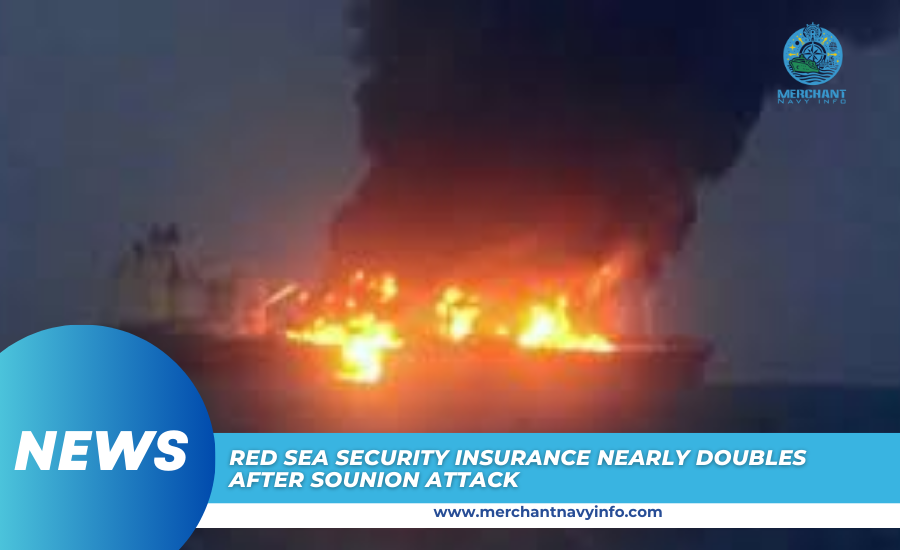
Red Sea Security Insurance Nearly Doubles After Sounion Attack
Insurance costs for ships traveling through the Red Sea have nearly doubled after Yemen’s Houthi rebels attacked a tanker that appeared to be leaking oil, raising environmental concerns about the trade route, oil industry sources said on Wednesday.
The Iran-aligned Houthis first launched drone and missile airstrikes on the waterway in November, which they said was in solidarity with Palestinians in Gaza. In more than 70 attacks, they sank two ships, captured another, and killed at least three sailors.
In the latest escalation, the Greek-flagged tanker Sounion was hit by several shells last week and appeared to be leaking oil, the Pentagon announced on Tuesday.
A third group tried to send a tugboat to help rescue the Sounion, but the Houthis threatened to attack them, the Pentagon added.
Insurance industry sources, who spoke anonymously, said on Wednesday that additional war risk insurance premiums paid by ships while sailing in the Red Sea are estimated to be as high as 0.75% of the ship’s value, up from 0.4% before the attack. This is despite a 1% rise in February based on an industry risk level assessment.
The source added that while prices for Chinese ships have fallen 50% since February due to a reduced risk of being targeted, the recent cost increase could add hundreds of thousands of dollars to the cost of passing through the region.
An industry source said some insurers are currently not offering cover in the region due to the potential risk of tankers sinking.
An EU ASPEDS naval mission official cited an August 28 letter to the Maritime Rescue Coordination Centre stating that they were assessing the “feasibility of taking preventive measures” such as towing the Sonion.
“The situation poses a serious and imminent threat of regional pollution, with coastal states at greatest risk,” the letter said.
Million barrels of crude and fire
A maritime security source said the tanker, carrying 1 million barrels of crude, caught fire on Wednesday.
“Delta Tankers is doing everything it can to move the ship (and cargo),” a manager at the Sonion told Reuters separately.
“For security reasons, we cannot comment further.”
Houthi spokesman Yahya Sari said in a televised speech that they attacked the tanker in part because Delta Tankers violated a ban on “entering occupied Palestinian ports.”
Houthi sources told Reuters on Wednesday that the ship was on fire, adding that there would, therefore, be no leaks or pollution of the sea.
U.S. State Department spokesman Matthew Miller said on August 24 that although the crew had been evacuated, the Houthis “appeared to be intent on sinking the ship and its cargo at sea.”
The Sounion is the third ship operated by Athens-based Delta Tankers to be attacked in the Red Sea this month. Delta Tankers said in a previous statement that the attack caused a fire on board, killing the crew.
The United Nations said in a report last year that any major oil spill would devastate fishing communities along Yemen’s Red Sea coast, where 500,000 Yemenis are engaged in the industry.
“Entire communities will be exposed to life-threatening toxins,” the UN said.









